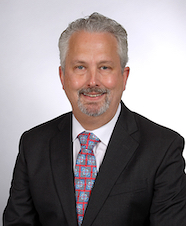 Louis Justement, Ph.D., professor in UAB’s Department of Microbiology, has been elected to the Association of American Medical Colleges’ (AAMC) Group on Research, Education, and Training (GREAT) Steering Committee for a three-year term.
Louis Justement, Ph.D., professor in UAB’s Department of Microbiology, has been elected to the Association of American Medical Colleges’ (AAMC) Group on Research, Education, and Training (GREAT) Steering Committee for a three-year term.
Founded in 1996, GREAT seeks to offer professional development opportunities and foster communication among faculty and administrative leaders of biomedical, Ph.D., M.D.-Ph.D., and postdoctoral programs across the nation.
Among its goals GREAT seeks to analyze factors that determine the quality of biomedical Ph.D. degrees, to modernize Ph.D. curricula, to address diversity issues in biomedical graduate and postdoctoral programs, and more.
“During my career, I have dedicated a significant amount of time and effort to foster trainee success,” Justement said. “This is of the utmost importance to me, and it is essential for the long-term success of the biomedical research enterprise.”
Prior to his appointment to the GREAT Steering Committee, Justement has been active at the national level in promoting numerous initiatives pertaining to graduate and postdoctoral education. These include serving as the Chair of the Training and Career Opportunities Subcommittee at the Federation of American Societies for Experimental Biology (FASEB), as well as Vice President for Science Policy, and President of the Federation.
He is also a member of the GREAT Group Outreach Committee, supplementing his recently appointed role to the GREAT Steering Committee.
“In this role my goal is to use the experience I have gained over many years to promote career and professional development opportunities for trainees to ensure that they are successful in pursuing a wide range of career paths that include research-intensive as well as science-related careers,” Justement said.
“Other issues that are of critical importance include efforts to ensure rigor and evidence-based practices in graduate education, to provide graduate students with career and professional advice, to foster mental health awareness, to ensure that trainees have safe and inclusive learning environments and to ensure that we foster a diverse biomedical workforce that provides opportunities to individuals from historically disadvantaged backgrounds,” he added.